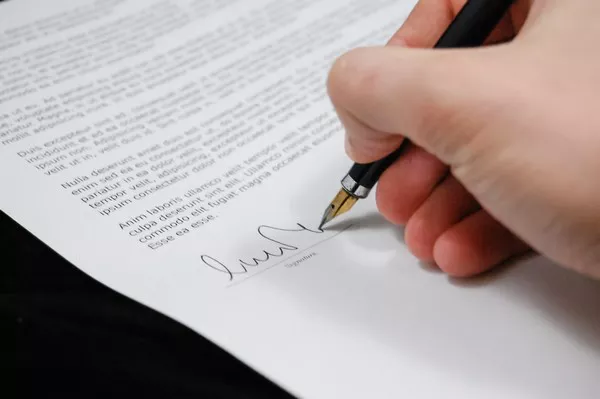Friendships are an essential part of our lives. They provide us with emotional support, companionship, and a sense of belonging. However, not all friendships are beneficial. Some can become toxic, negatively affecting our mental health and personal growth. Identifying when a friend is not good for you can be challenging, especially when emotions are involved. This article explores the psychological signs of a harmful friendship and offers strategies to protect your emotional well-being.
The Importance of Healthy Friendships
Healthy friendships are characterized by mutual respect, trust, and emotional reciprocity. A good friend is someone who listens, supports you in tough times, and celebrates your successes. In a psychologically healthy friendship, both parties benefit from the relationship without feeling drained or manipulated.
However, when these qualities are missing, a friendship can become detrimental to your mental health. While it’s normal for friendships to have ups and downs, long-term patterns of negative behavior are warning signs that the relationship may no longer serve your best interests.
Signs a Friend is Not Good for You
Constant Emotional Drainage
One of the first psychological signs that a friend may not be good for you is constant emotional exhaustion after interacting with them. If you feel emotionally drained, anxious, or overwhelmed after spending time together, this may indicate that the friendship is unbalanced. In a toxic friendship, the person may continually rely on you for emotional support without offering any in return, leaving you feeling depleted. Over time, this can lead to burnout, increased stress levels, and emotional fatigue.
One-Sided Relationships
Healthy friendships require balance, where both parties invest in the relationship. If you find that you are always the one making the effort—whether it’s initiating conversations, planning meetups, or offering help—this could be a sign of an unhealthy dynamic. One-sided friendships can lead to feelings of resentment and frustration. Psychologically, these types of relationships are draining because they create an imbalance of emotional energy, where one person consistently takes while the other gives.
Lack of Support and Empathy
Friends should be your biggest cheerleaders, providing support during both the highs and lows of life. If your friend is consistently unsupportive, dismissive, or indifferent to your struggles and achievements, this could be a major red flag. This lack of empathy can lead to feelings of isolation and low self-esteem. Psychologically, humans are wired for connection and support, and when a supposed friend fails to offer this, it can severely impact your sense of worth and emotional security.
Manipulative Behavior
Manipulation is a clear indicator of a toxic friendship. This can manifest in various forms, such as guilt-tripping, playing the victim, or using emotional blackmail to get their way. A manipulative friend may twist situations to make you feel responsible for their happiness or problems. Over time, this erodes your sense of autonomy and self-esteem. From a psychological standpoint, manipulation creates confusion and self-doubt, making it difficult for you to set boundaries and maintain your emotional health.
Constant Negativity and Criticism
Constructive criticism from friends can be helpful, but constant negativity or harsh criticism is damaging. A friend who constantly points out your flaws, undermines your achievements, or brings negativity into your life is not supporting your personal growth. This behavior can lead to self-doubt and diminished self-worth, as you may internalize their criticism. In psychology, chronic exposure to negativity can affect your mental health, leading to anxiety, depression, and low self-esteem.
Jealousy and Competitiveness
While a little bit of competition between friends can be healthy, excessive jealousy or rivalry is harmful. A toxic friend may become envious of your success and may even attempt to downplay your accomplishments or make you feel guilty about them. Jealousy creates tension and can damage the trust and support that should exist in a friendship. Psychologically, jealousy in friendships triggers feelings of insecurity and self-doubt, causing emotional harm and reducing your sense of satisfaction with your achievements.
Frequent Boundary Violations
A friend who does not respect your boundaries is not prioritizing your emotional well-being. Healthy boundaries are essential for maintaining a sense of self in any relationship. If a friend consistently ignores your requests for personal space, time, or respect for your values, this is a sign of a toxic dynamic. Boundary violations can lead to feelings of frustration, resentment, and emotional overwhelm. Psychology emphasizes the importance of boundaries as a way to protect one’s mental health, autonomy, and emotional energy.
See Also: How to Maintain Online Friendships?
Drama and Chaos
Toxic friends often bring drama and chaos into your life. They may thrive on conflict, create unnecessary problems, or drag you into their personal issues. This constant state of turmoil can have a detrimental effect on your mental health, leaving you feeling anxious or stressed. Drama-filled friendships are emotionally exhausting and can prevent you from focusing on your own life and well-being. In psychological terms, this creates an environment of chronic stress, which can have long-term consequences for your mental and physical health.
Undermining Your Growth
A true friend encourages your personal and professional growth. If you have a friend who belittles your ambitions, discourages you from pursuing your goals, or shows little interest in your growth, they may not have your best interests at heart. This behavior can lead to feelings of inadequacy and a lack of motivation. From a psychological perspective, humans are driven by the need for growth and self-actualization, and a friend who undermines this can stifle your potential.
Gaslighting
Gaslighting is a form of emotional manipulation in which a person causes you to question your own reality or feelings. If a friend constantly denies their hurtful actions, dismisses your feelings, or makes you doubt your perception of events, they are engaging in gaslighting. This behavior can have severe psychological effects, including confusion, self-doubt, and a diminished sense of self-worth. Gaslighting erodes your trust in yourself and can lead to emotional instability over time.
The Psychological Impact of Toxic Friendships
Toxic friendships take a significant toll on your mental health. Over time, they can lead to:
Decreased Self-Esteem
Constant criticism, manipulation, and lack of support from a toxic friend can erode your self-esteem. You may begin to question your worth, doubt your abilities, and internalize their negative behavior, leading to feelings of inadequacy.
Increased Stress and Anxiety
Toxic friendships often create ongoing stress and anxiety. Whether it’s dealing with constant drama, manipulation, or boundary violations, these interactions activate your body’s stress response, leading to chronic tension and emotional exhaustion.
Emotional Burnout
Trying to maintain a one-sided or manipulative friendship can lead to emotional burnout. When you’re constantly giving without receiving, it depletes your emotional reserves, leaving you feeling drained, resentful, and disconnected.
Isolation and Loneliness
A toxic friend may isolate you from other relationships or make you feel alone, even when you’re with them. Their lack of empathy and support can create feelings of isolation and loneliness, as you may feel that you cannot rely on them for emotional support.
What to Do if a Friendship is Harmful
Recognizing that a friendship is no longer good for you can be difficult, but it is an important step toward protecting your emotional well-being. Here are steps you can take to address the situation:
Set Boundaries
Clearly communicate your needs and boundaries with your friend. Let them know what behavior is unacceptable and how it affects you. Healthy boundaries are essential for maintaining emotional balance in any relationship.
Evaluate the Friendship
Take time to reflect on whether the friendship is worth saving. Consider whether the negative aspects outweigh the positive ones, and whether your friend is willing to change harmful behaviors.
Limit Contact
If the friendship is causing significant emotional distress, it may be necessary to limit contact or distance yourself from the friend. Reducing interactions can help protect your mental health while giving you time to heal.
Seek Support
Talking to a therapist or trusted individual can help you process the emotions and challenges that come with ending a toxic friendship. Professional guidance can provide insight into how to move forward in a healthy way.
End the Friendship if Necessary
In some cases, the best option may be to end the friendship altogether. While this can be emotionally difficult, prioritizing your well-being is crucial. Ending toxic friendships allows space for healthier, more supportive relationships to develop.
Conclusion
Knowing when a friend is not good for you is essential for maintaining your mental and emotional health. Toxic friendships can lead to stress, anxiety, low self-esteem, and emotional burnout. By recognizing the signs of a harmful relationship and taking steps to protect your well-being, you can create space for positive, supportive friendships that contribute to your personal growth and happiness. Prioritizing your emotional health is a form of self-care that ensures you surround yourself with people who uplift and support you, rather than drain your energy.
Related topics:


















